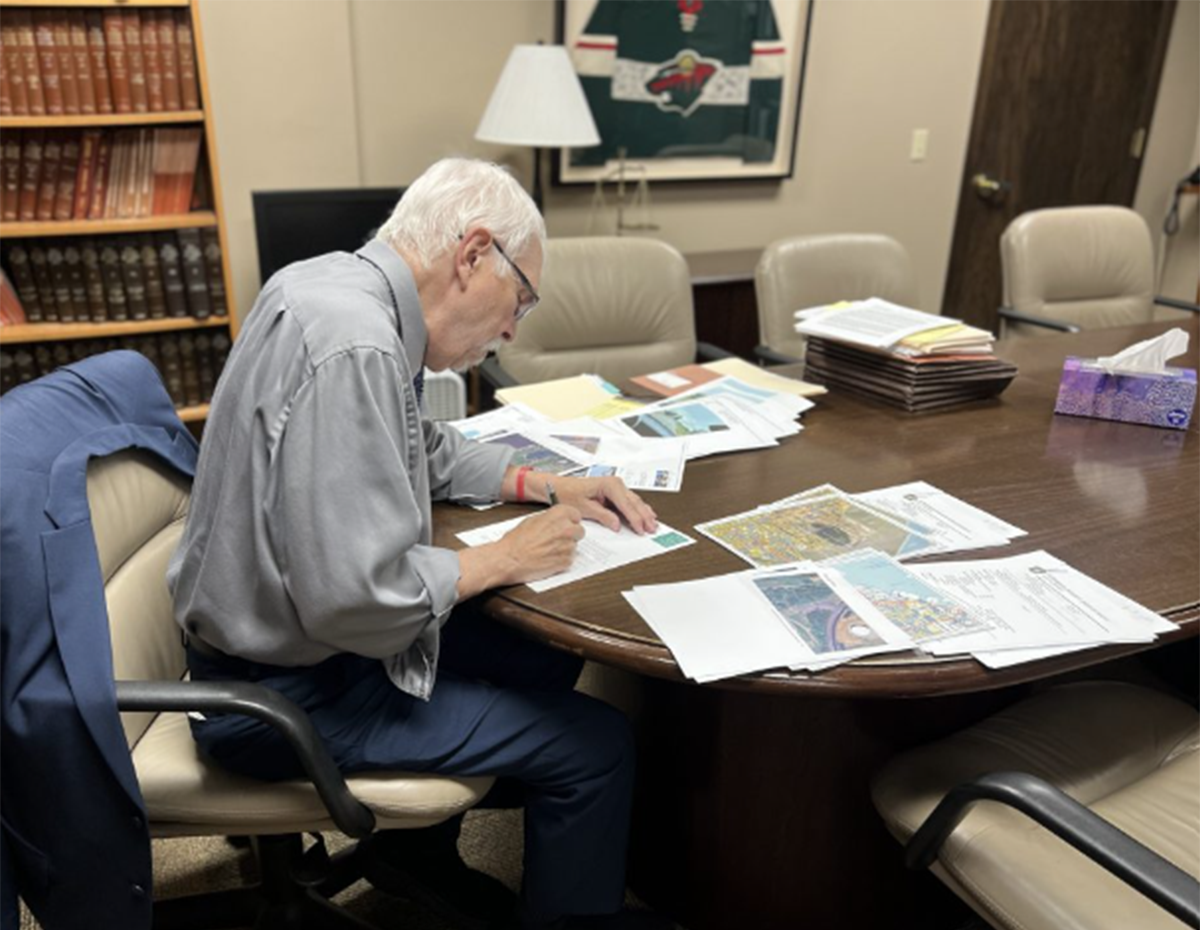As winter is nearing and the thought of winter break is on several minds, junior Curt Hartfiel will be preparing for class.
Beginning on Jan. 2 and lasting until Jan. 18 Hartfiel will be attending the Winterim session. Hartfiel switched majors and will be taking one class during the session in order to “catch up.”
“I think it will be a little bit easier having one class to concentrate on,” Hartfiel said.
During Winterim, students will be immersed in intensive study, since the material load will be the same as that of a regular semester class.
The material will be very condensed, however, biology Professor Lloyd Turtinen said.
Turtinen has taught a course before during Winterim and may be teaching Biology 491, Infectious Disease Ecology, for this year’s session.
“I think (Winterim courses) are harder on the instructor than on the students,” he said.
For his classes, Turtinen said all of the material is covered, but in a little bit different way. For example, some exams are take home because class time is limited.
The classes are smaller and there is more interaction, he said. He also thinks the classes during Winterim are great, but for some students it could be too much, too fast.
The Winterim session began in 1996 with three courses offered, said Jan Morse, administrative officer in Academic Affairs. The session was developed at the request of students, she said.
With each year enrollment has increased and last year held the highest enrollment number ever, Morse said. For the 2002 session she expects the numbers to be similar.
Morse believes students can benefit from taking a course during Winterim in a number of ways. The courses can help accelerate a student’s degree or allow him or her to catch up on credits they need. The Winterim session can allow students to get into a course more easily than when it is offered during a regular semester, she said.
“(Winterim courses) allow students to really immerse themselves in a study,” Morse said.
For the 2002 Winterim session there are 63 courses available. Some of the classes could be canceled, however.
Cancellations occur if there are not enough students enrolled in a particular course.
Courses will be offered in various departments including Art, Biology, Business Communication, Kinesiology, Economics, Political Science, Psychology, Sociology and several more. The topics range from basic classes such as Introduction to Sociology to more in depth classes like Arab-Israeli Conflict.
Registration began Oct. 15 and will continue through Friday.
Students will be able to enroll until the session begins, but are encouraged to do so as soon as possible in case the class is chosen to be cut.






